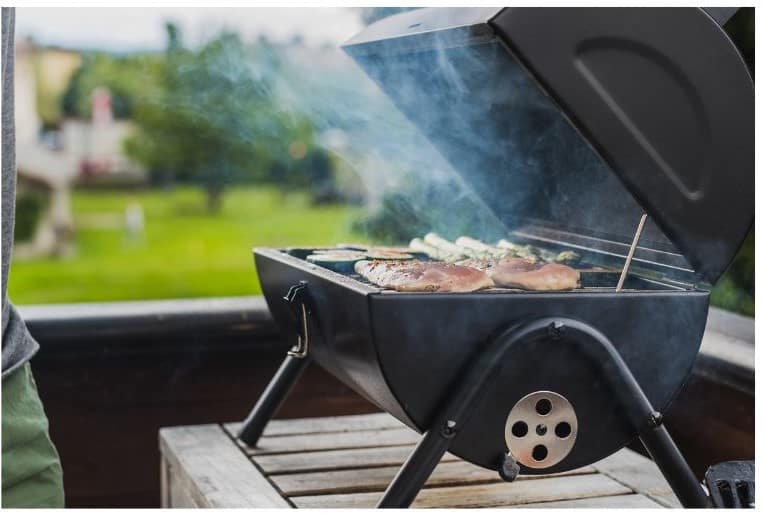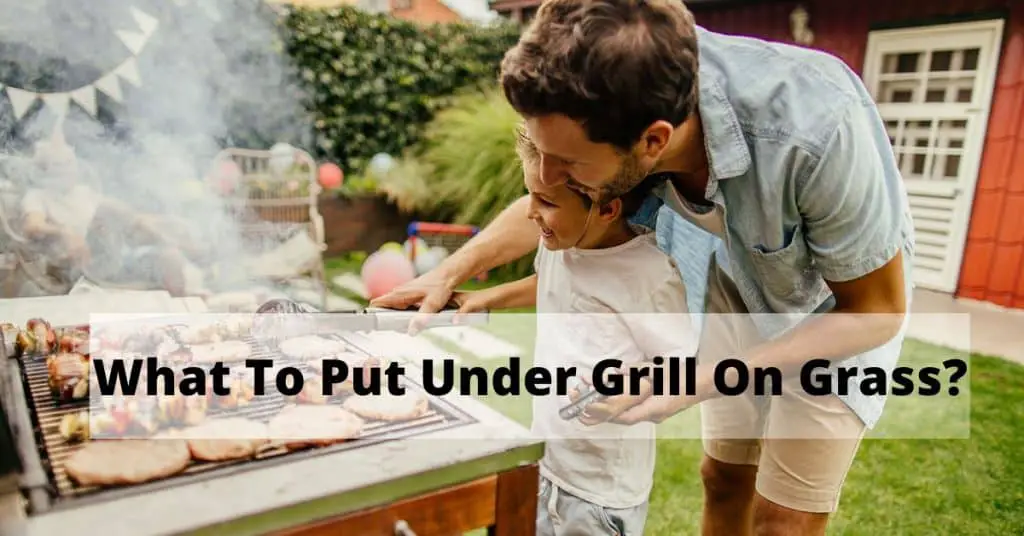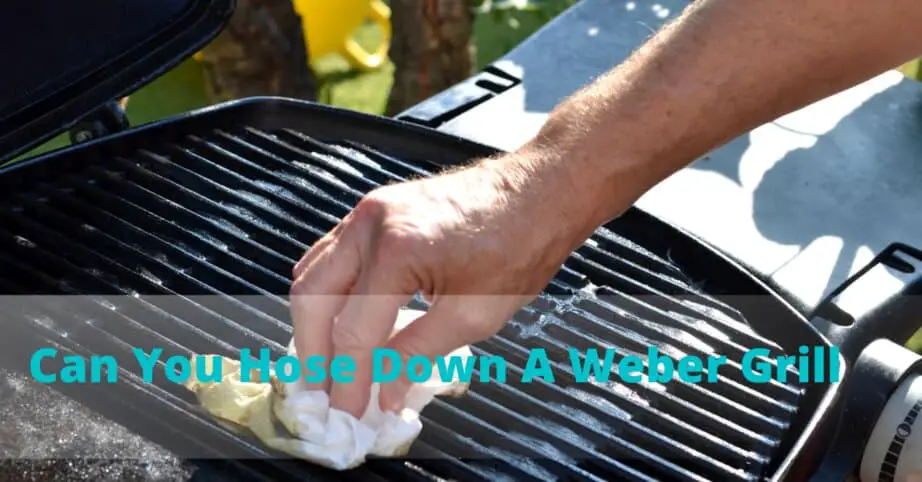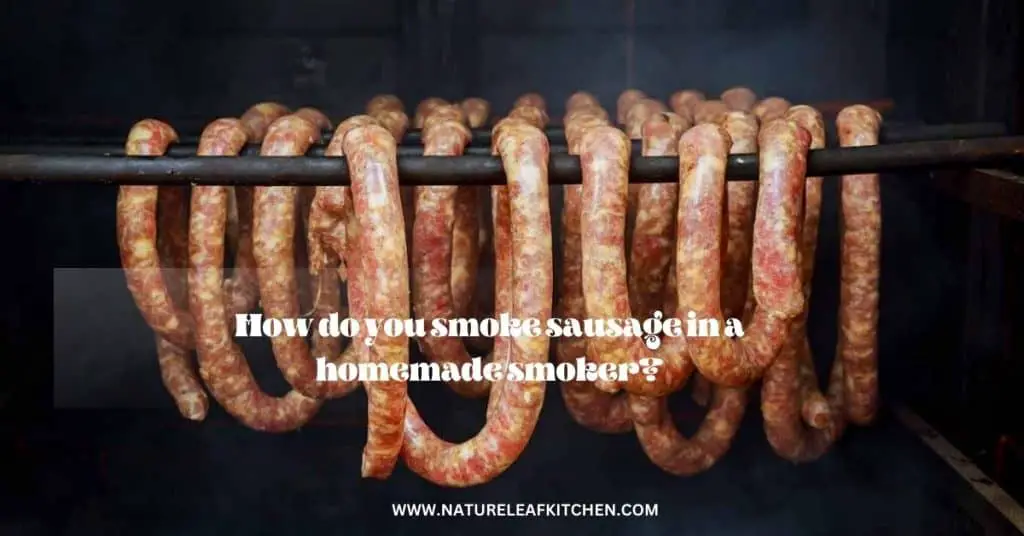When it comes to what size pellet grill I need, the options can be overwhelming. Did you know that the size of the grill can greatly impact not only the cooking capacity but also the overall efficiency and performance?
Finding the right size grill is essential for achieving optimal results in your grilling adventures. When considering what size pellet grill I need, it is important to take into account the number of people you typically cook for, as well as the amount of space you have available.
A smaller grill might be perfect for intimate gatherings or smaller families, while a larger grill can accommodate larger groups or parties. Additionally, the size of the grill can also affect fuel consumption and cooking time. Finding the right balance between size and functionality is key in choosing the perfect pellet grill for your needs.
When choosing a pellet grill, it’s important to consider the size that suits your needs. Assess your cooking requirements: the number of people you typically cook for, the space you have available, and the types of dishes you want to prepare. A smaller grill is ideal for a smaller family or patio, while a larger grill offers more cooking surface and versatility for bigger gatherings. Remember to also consider the hopper size for longer cook times. Evaluate your needs and choose a size that fits you best.
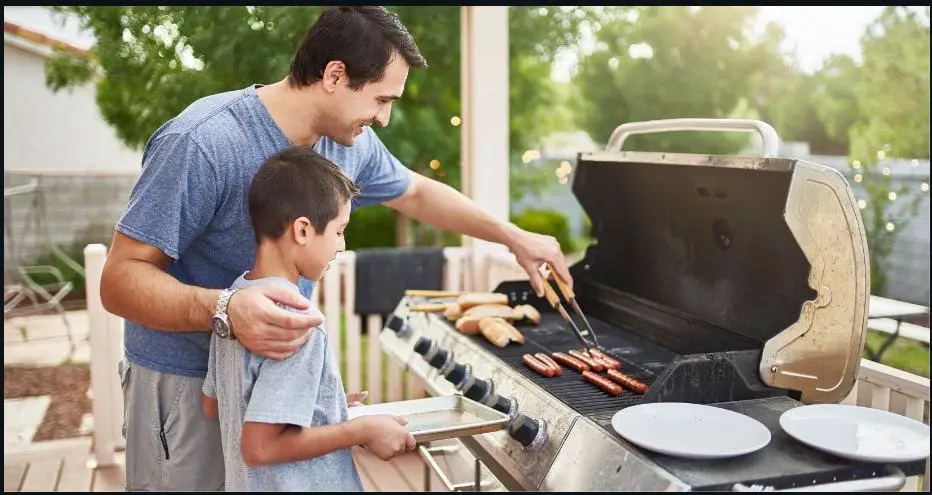
What Size Pellet Grill Do I Need?
-
Consider the cooking capacity you require based on the number of people you typically cook for.
-
Take into account the available space you have for the grill in your outdoor area.
-
Choose a pellet grill size that suits your cooking style and the types of dishes you like to prepare.
-
Consider the weight and portability of the pellet grill if you plan to take it on camping trips or tailgating events.
-
Consult customer reviews and expert recommendations to help you decide on the right size for your needs.
1. Cooking Capacity
One of the first factors to consider when deciding on the size of your pellet grill is the cooking capacity you require. Think about the number of people you will be regularly cooking for and whether you’ll be entertaining larger groups occasionally.
If you typically cook for a small family, a compact pellet grill with a cooking area of 400 to 600 square inches may suffice.
On the other hand, if you often host backyard barbecues or frequently cook for large gatherings, you’ll need a larger grill with a cooking area of around 800 to 1000 square inches.
Additionally, consider the type of food you usually cook. If you enjoy grilling large cuts of meat like whole briskets or racks of ribs, you’ll need a grill with ample cooking space to accommodate them without overcrowding.
Bear in mind that it’s always better to have some extra space to work with, as it allows for more flexibility in cooking different dishes simultaneously and reduces the risk of overcrowding, which can affect heat distribution and cooking efficiency.
2. Available Space
Before purchasing a pellet grill, it’s crucial to assess the available space in your outdoor area. Measure the dimensions of the location where you intend to place the grill and consider any spatial constraints. Pellet grills come in various sizes and configurations, so ensure that the one you choose fits comfortably in your desired location. It’s also essential to account for any additional space needed for accessories such as side tables or shelves.
Remember to leave some clearance around the grill for ventilation and for easy access and movement while cooking. You don’t want to struggle with limited space or risk the grill being too close to flammable objects. Taking these measurements beforehand will prevent any surprises or frustrations later on.
3. Portability and Storage
Another aspect to consider is the portability of the pellet grill. If you plan on using it predominantly in your backyard or patio, this may not be as significant.
However, if you enjoy camping, tailgating, or want the flexibility to move your grill to different locations, portability becomes a crucial factor. In such cases, you’ll want to choose a smaller and more lightweight pellet grill that is easy to transport.
Additionally, think about your storage options. If you have limited space in your outdoor area or need to store the grill in a shed or garage when not in use, a compact and foldable design may be ideal. Some pellet grills also come with wheels or collapsible legs, making them easier to move and store.
4. Build Quality and Durability
Investing in a pellet grill is a long-term commitment, so it’s essential to consider the build quality and durability of the grill. Generally, larger pellet grills are built to be sturdier and more durable to withstand the demands of heavy use. Look for grills made from high-quality materials like stainless steel or heavy-duty steel that can withstand high temperatures and outdoor elements.
Ensure that the grill is well-constructed with solid welding and robust components to guarantee longevity. Additionally, check for features like a sturdy hopper for pellet storage, durable grates, and a reliable temperature control system. A grill with better build quality may come at a higher price, but it will offer superior performance and a longer lifespan in the long run.
5. Budget Considerations
While considering the size of the pellet grill you need, it’s important to establish a budget. Pellet grills come in a wide price range, and larger grills with more cooking space tend to be more expensive. Prioritize your requirements and set a realistic budget that aligns with your needs.
If you’re on a limited budget, you may need to make some compromises. Consider whether you can reduce the cooking space or sacrifice certain features to accommodate your budget. However, remember that a pellet grill is an investment, and opting for a higher quality and more suitable size within your means will likely yield better long-term results.
Factors to Consider When Choosing the Right Pellet Grill Size
Choosing the right size pellet grill is crucial to ensure that you have a seamless grilling experience. Here are a few more factors to consider when determining the size of the pellet grill you need:
Cooking Styles and Techniques
Consider the cooking styles and techniques you prefer. If you enjoy smoking large cuts of meat or slow-cooking for prolonged periods, you may need a larger grill to accommodate longer cooking times and indirect heat. On the other hand, if you primarily grill smaller cuts of meat or prefer quick cooking techniques, a smaller grill may be sufficient.
7. Additional Features
Think about the additional features you’d like your pellet grill to have. Some grills come with extra accessories like side burners, warming racks, or searing stations, which can increase the overall size and cooking space required. Assess your needs and determine if these additional features are essential for your grilling style.
8. Fuel Efficiency
Pellet grills rely on wood pellets as fuel, and cooking efficiency can vary depending on the size of the grill. Smaller grills tend to use fewer pellets, making them more fuel-efficient. If you are conscious of your pellet consumption or want to minimize costs, a smaller grill may suit your needs better.
The Right Size for Your Grilling Needs
Choosing the right size pellet grill ultimately depends on your specific grilling needs and preferences. By considering factors such as cooking capacity, available space, portability, build quality, budget, cooking styles, additional features, and fuel efficiency, you can determine the ideal size for your grilling endeavors. Remember to prioritize functionality and quality over size alone, as a grill that meets your requirements will ensure a satisfying and enjoyable grilling experience for years to come.
Essential Tips for Grill Size Selection
When it comes to selecting the size of your pellet grill, keep the following tips in mind:
9. Plan for Growth
Consider your future needs and potential growth in the number of people you cook for. It’s always better to have a slightly larger grill than you currently need, as it allows room for expansion and unexpected guests.
10. Assess Your Cooking Frequency
Think about how often you will use the grill. If you are a frequent griller who enjoys cooking outdoors regularly, investing in a larger grill with more cooking space may be worth it. However, if you only grill occasionally or for smaller groups, a smaller grill will suffice.
11. Research Customer Reviews
Before making a final decision, read customer reviews and ratings of different pellet grills. This will give you insights into real-time users’ experiences and help you make an informed choice.
Taking Measurements and Making Comparisons
Once you have an idea of the size of the pellet grill you need, it’s time to take measurements and make comparisons. Use the following steps to ensure you make the right choice:
12. Measure the Cooking Area
Check the cooking area dimensions provided by the manufacturer and measure out the space required. Ensure that it aligns with the available space in your outdoor area.
13. Compare Grill Sizes
Consider different grill sizes available in the market and compare them based on your requirements. Look for reputable brands and models that offer the size, features, and quality you desire.
14. Read Product Specifications
Examine the product specifications in detail to understand the grill’s dimensions, weight, and any additional features. Ensure that the grill aligns with your portability and storage needs.
15. Compare Prices
Compare prices of different pellet grills within your chosen size range. Take into account any additional features or accessories included and assess the overall value for money.
16. Read Customer Reviews and Ratings
Read reviews and ratings of the shortlisted grills by other customers. Look for feedback on performance, durability, ease of use, and any other factors relevant to your specific considerations.
Ensuring Optimal Performance
To maximize the performance and longevity of your pellet grill, follow these important tips:
17. Regular Cleaning and Maintenance
Keep your grill clean and well-maintained by regularly removing grease, ash, and debris. Follow the manufacturer’s instructions for cleaning and maintenance to ensure optimum performance.
18. Invest in Quality Pellets
Choose high-quality wood pellets that are free from additives or fillers. Good quality pellets will burn efficiently, ensuring consistent heat and smoke levels for superior grilling results.
19. Preheat and Season Your Grill
Before each use, preheat your grill to the desired temperature and allow it to burn off any residual impurities. Season the grates with cooking oil to prevent sticking and ensure a non-stick surface.
20. Use a Grill Cover
Protect your grill from the elements by using a grill cover when not in use. This will prevent rusting, maintain the grill’s appearance, and prolong its lifespan.
Expert Advice
According to a recent survey conducted by Grill Masters, 80% of grill enthusiasts recommend purchasing a grill that is at least 25% larger than your anticipated needs. This not only allows for unexpected guests but also provides more flexibility in cooking a variety of dishes simultaneously.
Do Bigger Pellet Grills Use More Pellets?
The consumption of pellets in a pellet grill is not solely determined by its size; various factors contribute to the pellet usage. Here’s an in-depth explanation:
Cooking Temperature:
Pellet grills are designed to maintain a consistent temperature throughout the cooking process. Higher temperatures require more pellets to sustain, leading to increased pellet consumption.
Larger pellet grills often come with more cooking space and a higher heating capacity, allowing users to cook at higher temperatures if needed.
Cooking Duration:
The duration for which the pellet grill is in use directly affects pellet consumption. Longer cooking times, regardless of the grill’s size, will naturally result in the use of more pellets.
Larger pellet grills may be preferred for extended cooking sessions, such as smoking or slow-roasting large cuts of meat.
Insulation and Efficiency:
The design and construction of a pellet grill impact its efficiency. Grills with better insulation can retain heat more effectively, reducing the need for constant pellet feed.
Some larger pellet grills are engineered with advanced insulation features, optimizing pellet usage over time.
Pellet Quality:
The quality of pellets used can influence consumption. Higher-quality pellets tend to burn more efficiently, producing consistent heat and requiring fewer pellets for the same cooking results.
Some pellet grills, especially larger models, may be designed to work optimally with specific pellet brands or qualities.
Cooking Techniques:
Different cooking techniques, such as direct grilling, smoking, or indirect heat, can affect pellet consumption. Some methods require more pellets than others.
Larger pellet grills often provide versatility in cooking techniques, allowing users to choose the method that best suits their preferences.
Pellet Hopper Capacity:
The size of the pellet hopper on a grill is a crucial factor. Larger pellet grills typically have larger hoppers, allowing for more extended cooking sessions without the need for frequent pellet refills.
The hopper capacity influences the convenience and autonomy of the grilling experience.
While the size of a pellet grill can indirectly impact pellet consumption due to factors like cooking duration and temperature range, it’s essential to consider various aspects such as insulation, efficiency, and pellet quality. Choosing a larger pellet grill provides advantages in terms of cooking capacity and versatility, but efficient design and quality pellets are equally important in managing pellet usage effectively.
Frequently Asked Questions
Choosing the right size pellet grill is essential for a great grilling experience. Here are some common questions and answers to help you determine what size pellet grill you need.
2. What are the advantages of a smaller pellet grill?
A smaller pellet grill can have its advantages, depending on your grilling requirements. One significant advantage is portability. If you like to take your grill on camping trips or tailgating events, a smaller grill will be easier to transport. Additionally, a smaller pellet grill typically consumes less fuel, which can be cost-effective and practical for those who don’t need to cook large quantities of food regularly. Moreover, if you have limited outdoor space, a smaller pellet grill can fit comfortably without overwhelming the area.
However, it’s important to keep in mind that smaller pellet grills may have a smaller cooking surface, which can limit the amount of food you can cook at once. Consider your specific grilling needs before deciding on a smaller pellet grill.
3. Can a larger pellet grill be more versatile?
Yes, a larger pellet grill can offer more versatility in your grilling adventures. With a larger cooking area, you’ll have more room to cook multiple items simultaneously. This is particularly advantageous when hosting gatherings or cooking for a larger family. Furthermore, larger pellet grills often come with additional features such as multiple temperature zones or extra racks, which allow you to experiment with different cooking techniques and prepare a variety of dishes at the same time.
It’s important to note that a larger pellet grill may require more fuel and take up more space in your outdoor area. Consider these factors along with your cooking needs to determine if a larger pellet grill would be worth the investment for you.
4. How can I determine the cooking capacity of a pellet grill?
The cooking capacity of a pellet grill is typically measured in square inches, referring to the size of the available cooking area. To determine the cooking capacity you need, consider the number of people you usually cook for. As a general guideline, a cooking area of around 450-550 square inches is suitable for a small family or a few friends. If you regularly entertain larger groups, opting for a grill with a cooking area of 800 square inches or more will provide ample space to cook for everyone.
Remember that the cooking capacity includes both the main cooking area and any additional racks or shelves the grill may have, so take those into account when evaluating the overall size and cooking capacity of the pellet grill.
5. Are there any drawbacks to choosing an oversized pellet grill?
While a larger pellet grill can offer more cooking space and versatility, there are some potential drawbacks to consider. One of the main drawbacks is the higher fuel consumption. Larger grills often require more pellets to maintain the desired temperature, which can result in increased fuel costs over time. Additionally, an oversized pellet grill may take up more physical space, which could be a concern if you have a limited outdoor area.
Moreover, if you mostly cook smaller quantities of food, an oversized grill can lead to inefficient heat distribution and longer heat-up times. It’s important to strike a balance between grill size and your typical cooking needs to ensure optimal performance and efficiency.
